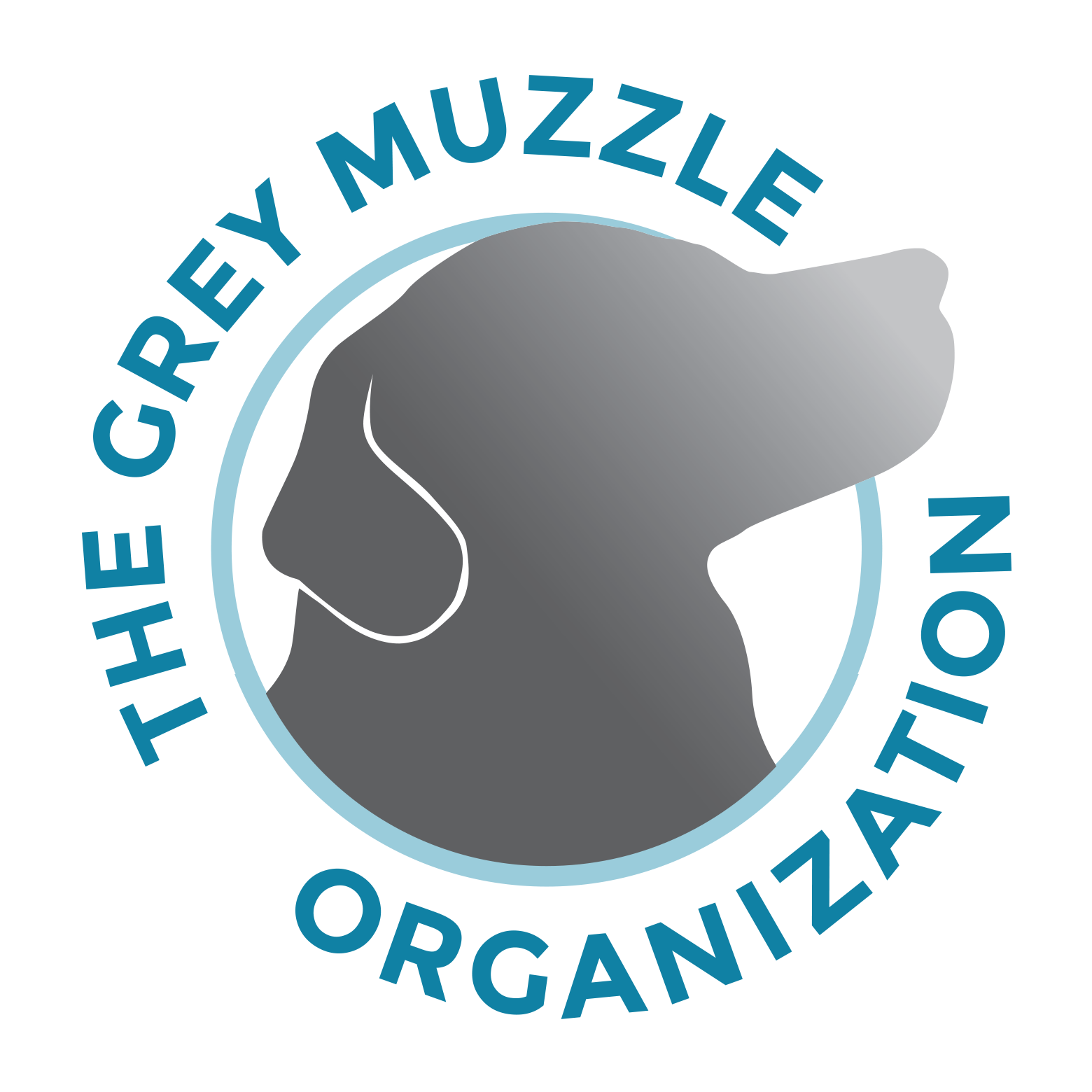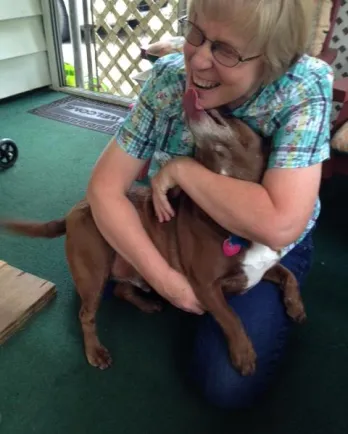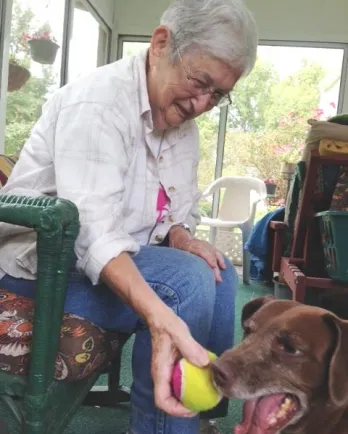"Five years later and we are still in love": Banishing Loneliness One Dog at a Time at Knox PAWS
The Loneliness Epidemic. Is Loneliness a Bigger Public Health Threat than Obesity? Feeling Lonely Can be as Deadly as Smoking. These are just a few recent headlines about social isolation and loneliness, which appear to be increasing in all segments of the population but disproportionately impact seniors, who are more likely to live alone and lack social support. Initiatives and efforts to address the problem vary from establishing communal living arrangements to opening senior centers to appointing, in the UK, a new "Minister for Loneliness."
And then there's Knox PAWS (Placing Animals with Seniors). One of 46 programs sponsored by the Knoxville-Knox County Office on Aging, Knox PAWS addresses loneliness in seniors by carefully matching them with adoptable senior pets, then providing the community support the new pair needs to thrive.
"Our first goal is to reduce loneliness and stress, as well as improve the physical and mental health of seniors, and our second goal is to reduce the number of senior pets that are surrendered or euthanized at our local shelters," Kendra Luketic, Coordinator for Knox PAWS and its constituent programs, Project LIVE and the Feed a Pet Project, explains. "From my experience with the Knox PAWs program, I believe that ailments like depression, isolation, obesity, high blood pressure, etc. are in fact being reduced ... Many adopters love reporting and letting us and visiting volunteers know about positive changes happening to them after adopting a pet with us."
Take the adopter of a sweet little senior named BJ, who told Luketic, "He has made my life livable again. I was lonely and he brought me out of my depression. He is as cute as he can be and such a good listener!” Another Knoxville senior who adopted dog Sadie-Mae through Knox PAWS, declares, “Five years later and we are still in love. Sadie-Mae and I go on walks every day. We keep each other active.”
Program participants must be 60 or older, residents of Knox County, income-eligible, and live independently in a pet-friendly environment. "We receive referrals from seniors in our community who are low income and lonely, and who are looking for a furry companion," Luketic explains, "and then we work with those seniors to assist them with finding a pet at one of our local animal shelters. Once a match is found, we assist with the adoption fee and ongoing costs that the senior cannot cover in order to keep the senior and their pet together." Knox PAWS has established a strong relationship with shelters in the county, so that when a good senior candidate for adoption arrives in the facility—either as a stray or a surrender—the shelter staff pick up the phone. This represents a second chance at life for these dogs, since many are considered unadoptable due merely to their age.
Prospective adopters must fill out a questionnaire, meet with an adoption specialist, and pass a home visit before the adoption is approved."Many of our seniors live in subsidized housing for seniors, so pets absolutely must stay up-to-date on vaccinations," Luketic says. Knox PAWS has forged relationships with several veterinary practices who offer discounts to seniors in the program, and routine care, such as annual exams, dental care, flea and heartworm control, is also subsidized by grants, including the award from Grey Muzzle.
Knox PAWS works because of its collaboration with individuals and organizations in the community. Its many volunteers provide an array of services, including transportation for vet and grooming visits, temporary fostering during illness and hospitalization, and regular check-ins to make sure PAWS participants gain access to the professional support and equipment they need. "One thing our volunteers learn is that there is no quick phone call. There is no quick visit. Our seniors love to chat!"
Critical to the success of Knox PAWS is its partnership with the University of Tennessee School of Veterinary Sciences, which coordinates the donation of dog food from Hill's Pet Nutrition and a local organization, Pantry for Feeding Pets. The Feed-A-Pet Program, as it is known, is a joint venture of the vet school and the Office on Aging and all food is free to Knox PAWS participants. Veterinary students deliver the food to approximately 60 seniors every month. "The vet students do informal wellness exams for the dogs, so there's a learning component for them. And the seniors get to visit with the students and learn about health issues they may need to keep an eye on. It's a win-win," Luketic says.
There are advantages to being situated within the Office on Aging. For example, both staff and volunteers are in a position to identify additional needs the senior may have and refer them to another program, such as Mobile Meals or Affordable Medicine Options for Senior. "Some of our participants will say, oh, I'll skip buying my medicines so I can afford Fluffy's vaccinations," Luketic explains. Volunteers can relay that information to case workers, who ensure that these seniors do not have to sacrifice their own health for that of their pets.
"It takes a village and all of our resources—in and out of Knox County—to make Knox PAWS successful," Luketic concludes....and Grey Muzzle is happy to help!
Knox PAWS Success Stories
When asked for a "success story" Kendra Luketic, Knox PAWS Coordinator, admitted it was a challenge. "In my opinion, I feel like all of our success stories are wonderful. It is so hard to choose just one."
For example, there's Jake, a 9 year-old Boston Terrier mix, who belongs to an elderly client with a disability. The owner loved Jake very much, but had been unable to provide him the medical attention he needed, due to the cost. Working with Norwood Animal Hospital, which Luketic calls "a huge asset" to the program, Knox PAWS arranged for a thorough checkup, which revealed issues, some of which were serious and most likely painful to the senior dog. These problems included overgrown nails, poor dental health, a lipoma that impaired his movement, and a mass in his chest. Fortunately, none of these proved to be life-threatening, and when the now-healthy Jake was returned to his owner, she had tears in her eyes.
Then there's Annika, a 14 year-old cocker spaniel with allergies and frequent ear infections. She and her owner have participated in the Feed a Pet program for the last five years, and volunteers identified the problem and took Annika to Butler Animal Clinic, where allergy medicine and ear ointment were prescribed. With these interventions now covered by Knox PAWS, her owner says that Annika "is like a new woman!"
Finally, there's Monty, who was adopted by Ms. Ruth in 2011. At 12, Monty has osteoarthritis and gastrointestinal issues. With the help of a local vet clinic, the Feed a Pet program, and Knox PAWS, Monty receives treatment that keeps him comfortable and happy in his old age. Despite having aching bones sometimes, Monty loves to play fetch in the back yard. Ms. Ruth says, “I think sometimes he forgets he is 12. Monty is the best dog I have ever had. He takes care of me.”
Thanks, Knox PAWS, for making life better for senior dogs—and humans—in your community!
The Grey Muzzle Organization improves the lives of at-risk senior dogs by providing funding and resources to animal shelters, rescue organizations, sanctuaries, and other nonprofit groups nationwide.




